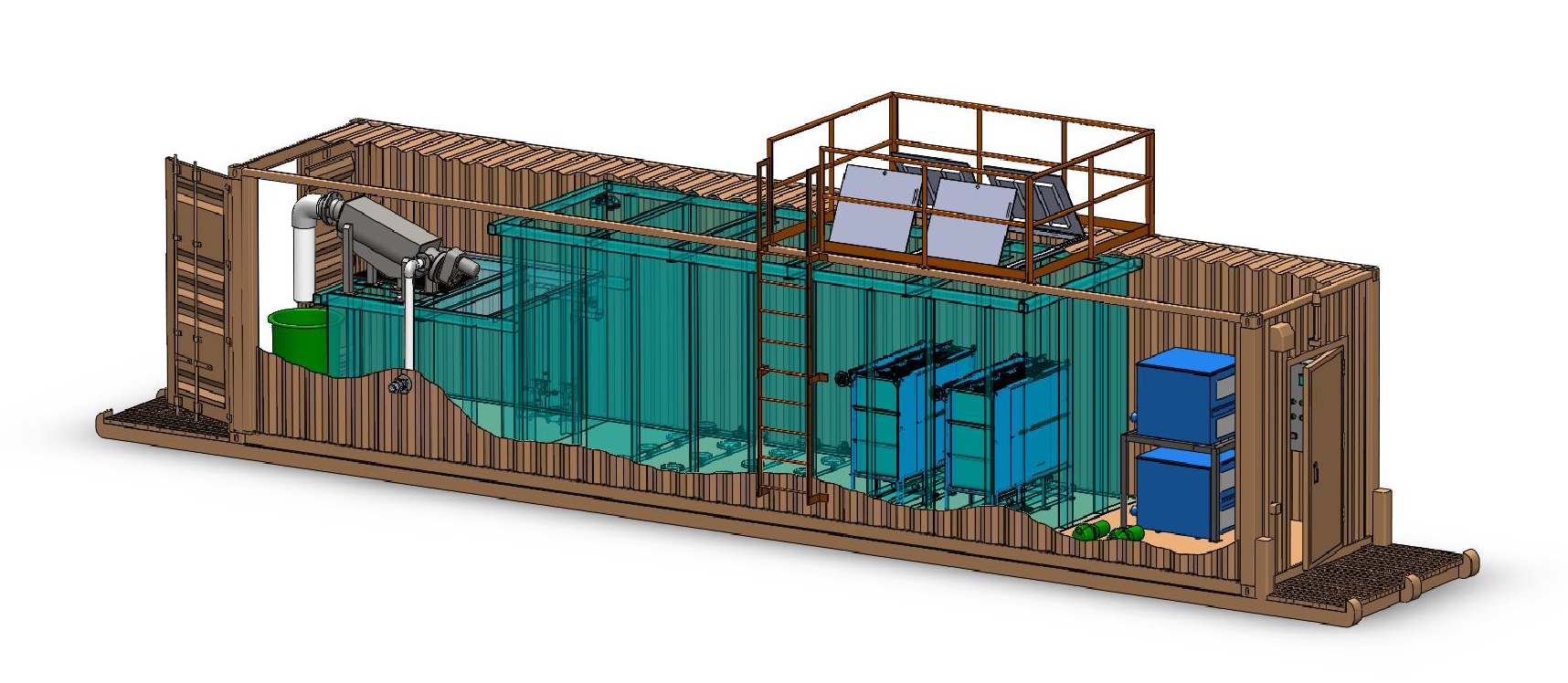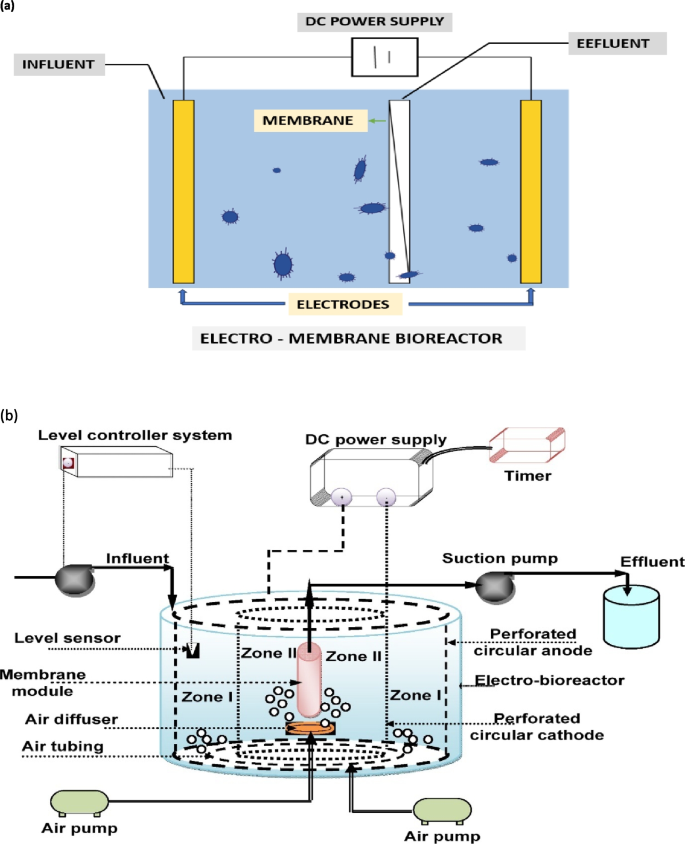The Advantages of Using a Membrane Bioreactor for Efficient Water Purification
The Advantages of Using a Membrane Bioreactor for Efficient Water Purification
Blog Article
Membrane Bioreactors Described: Reliable Solutions for Tidy Water
Membrane bioreactors (MBRs) have actually become an innovative option for resolving the pushing difficulties of wastewater treatment. By integrating biological procedures with innovative membrane layer filtering, MBRs not just enhance the quality of treated water however likewise lower the spatial demands of treatment facilities. As ecological issues magnify, the function of MBR modern technology in promoting sustainable water monitoring comes to be increasingly considerable. Nevertheless, the intricacies of their procedure, advantages, and possible applications warrant a closer evaluation to fully recognize their impact on the future of water treatment.

What Are Membrane Layer Bioreactors?
Membrane bioreactors (MBRs) are sophisticated wastewater treatment systems that combine biological destruction procedures with membrane purification innovation. This combination permits the effective elimination of pollutants from water, making MBRs a recommended choice in different applications, consisting of local wastewater treatment and commercial effluent administration.

One of the vital advantages of MBRs is their capacity to produce top notch effluent, typically suitable for reuse in watering or commercial procedures. Furthermore, MBRs call for a smaller impact contrasted to conventional therapy systems, making them ideal for urban setups where space may be limited.
Furthermore, MBRs can properly manage differing influent loads and are less susceptible to the effects of harmful shocks. These qualities add to their growing popularity as a sustainable service for dealing with the boosting demand for clean water while reducing ecological influences.
How Membrane Layer Bioreactors Work
While the operation of membrane layer bioreactors (MBRs) might seem facility, it fundamentally revolves around the synergy between biological procedures and membrane layer filtration. MBRs integrate an organic treatment procedure, normally triggered sludge, with a membrane layer splitting up device to treat wastewater successfully.
In an MBR system, wastewater is very first presented into a bioreactor where microbes deteriorate organic issue and various other contaminants. The biological task reduces the focus of pollutants while advertising the growth of biomass. Following this biological therapy, the combined alcohol goes through membrane layer filtration, which can be microfiltration or ultrafiltration, depending upon the preferred effluent quality.
The membrane layers act as a physical barrier, enabling water and small solutes to pass while keeping put on hold solids and larger molecules. This allows the system to preserve a high concentration of biomass within the reactor, enhancing the therapy efficiency.
Moreover, the constant splitting up of cured water from the biomass promotes a portable layout and reduces the footprint of the therapy facility. Generally, the combination of biological destruction and membrane layer purification in MBRs leads to efficient and dependable wastewater treatment, guaranteeing high-quality effluent ideal for numerous applications.
Advantages of MBR Technology
One of the crucial advantages of membrane bioreactor (MBR) innovation is its ability to generate high-quality effluent with a significantly minimized impact contrasted to traditional wastewater therapy methods. MBR systems efficiently integrate organic therapy and membrane layer purification, leading to remarkable removal of contaminants, including put on hold solids, pathogens, and raw material. This capacity causes effluent that commonly satisfies or exceeds strict regulatory standards for reuse and discharge.
Additionally, MBR modern technology enables higher biomass focus, which improves the therapy efficiency and minimizes the needed activator volume. This portable design is particularly valuable in city locations where area is restricted. The operational adaptability of MBR systems likewise means they can adjust to differing influent qualities and flow rates, making them suitable for a broad variety of applications.
Furthermore, the lowered sludge manufacturing connected with MBR procedures adds have a peek at this website to reduce functional and maintenance costs. The membranes act as a physical obstacle, reducing the danger of obstructing and making it possible for longer operational periods in between cleansing. On the whole, the benefits of MBR technology make it an attractive option for sustainable wastewater treatment, resolving both ecological worries and the need for effective resource administration.
Applications of Membrane Bioreactors
With their flexibility and effectiveness, membrane layer bioreactors (MBRs) find applications across various industries, consisting of local wastewater therapy, industrial processes, and also water reclamation. In municipal setups, MBRs give a compact solution for dealing with wastewater, successfully removing pollutants while simultaneously creating top quality effluent that fulfills rigid regulatory requirements. This makes them especially suitable for locations with minimal room.
In industrial applications, MBR technology is used for dealing with process water, particularly in industries such as food and drink, drugs, and petrochemicals. These markets gain from MBRs' ability to deal with high natural loads and their efficiency in recouping beneficial resources from wastewater, such as nutrients and water.
Moreover, MBRs play an important duty in water improvement initiatives, allowing the reuse of treated wastewater for watering, commercial procedures, or perhaps as potable water after more treatment (Membrane Bioreactor). Their efficiency in getting rid of contaminants and microorganisms makes them a trusted option for ensuring water top quality in numerous reuse applications
Future of Water Therapy Solutions
The future of water treatment options is positioned for transformative improvements driven by technical technology and enhancing ecological awareness. As worldwide water deficiency ends up being a pushing issue, brand-new methods, including membrane bioreactor (MBR) systems, are readied to play a crucial role in boosting the efficiency and sustainability of water treatment procedures.
Arising technologies such as man-made knowledge and machine learning are anticipated to optimize treatment operations, permitting real-time surveillance and predictive upkeep. This will certainly improve the overall dependability and efficiency of water therapy facilities. Moreover, advancements in membrane materials, such as graphene and nanofiltration, promise to increase permeation rates and decrease fouling, resulting in reduced power intake see this website and functional costs.
In addition, the assimilation of sustainable power resources right into water treatment plants will add to greener practices. The round economic situation version will certainly additionally get traction, encouraging the healing of beneficial sources from wastewater, such as nutrients and energy.
Conclusion

Membrane bioreactors (MBRs) have actually emerged as an innovative service for dealing with the reference pushing obstacles of wastewater therapy. By incorporating organic processes with innovative membrane purification, MBRs not just improve the quality of cured water yet also reduce the spatial needs of treatment centers.One of the key benefits of membrane bioreactor (MBR) modern technology is its capability to generate premium effluent with a considerably reduced footprint contrasted to conventional wastewater treatment methods.With their adaptability and efficiency, membrane bioreactors (MBRs) discover applications throughout different fields, including community wastewater therapy, commercial processes, and also water recovery.In conclusion, membrane bioreactors represent a significant development in wastewater treatment innovation, incorporating organic procedures with effective membrane purification to generate top quality effluent.
Report this page